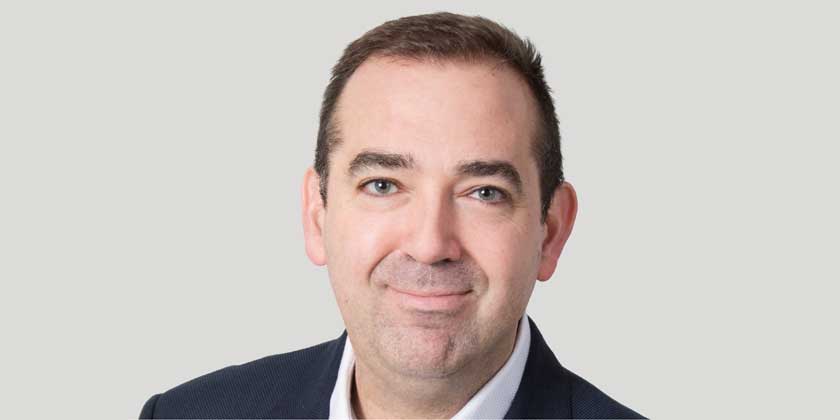Harness innovation to improve oral health
NewsPosted by: Dental Design 31st May 2019

Ultaire AKP offers a biocompatible, lightweight, natural feeling and more aesthetically pleasing alternative…
No matter what age you are, a great smile has considerable appeal. The teeth affect physical attractiveness and can also influence the way in which a person is perceived. This could possibly be the reason why we have seen growth in the demand for cosmetic dentistry and facial aesthetics, as well as an increase in solutions to care and treat an ageing population.
Ageing baby boomers form one of the largest segments of modern society. According to the World Health Organisation the proportion of people over 60 years of age worldwide is set to double by 2025 and by 2029, the last of the baby boomers will reach the age of 65. Born between 1946 and 1964, this generation has witnessed unprecedented social and cultural change and have enjoyed the security of economic growth, a ‘cradle to grave’ welfare system and the life long benefits of the NHS. In addition, baby boomers tend to be more active, healthier, happier, better educated and better nourished than previous generations and this, along with advanced medical care, means that their life expectancy is increased significantly. As far as oral health is concerned, a lifetime of good sanitation and fluoridation means that those aged over 55 can reasonably expect to keep at least some of their natural teeth for life.
Since the establishment of the NHS in 1948, baby boomers have had access to the dental care that previous generations were unable to afford. It is not all great news though, as during the early years, general NHS dentists were remunerated with a ‘fee per item’ treatment system. This was to meet the demands of the nation’s previously untreated mouths. However, it has been heavily criticised since because this method of payment placed an emphasis on quantity of care rather than quality. It has been reported that a significant amount of unnecessary treatment was carried out and it was not until the mid 1970s that the flaws of the system were recognised and the remuneration system and structure of NHS dentistry was reformed. Similarly, it was not until this time that dental professionals were actively encouraged to provide preventive care and educate patients on oral health matters.
Although most baby boomers now understand the concept of preventive dentistry, it is likely that they will have experienced numerous dental procedures. Certainly, many have some of their natural dentition but these individuals are often referred to as the ‘heavy-metal generation’, as they present with a high number of fillings and other restorations. This poses further challenges for the dental profession, as many of these restorations are not expected to last a lifetime and dentists may need to deliver complex treatment plans to repair or replace them. Additionally, the effects of ageing can also impact oral health and place individuals at an increased risk of periodontal disease or decay to teeth that are already heavily restored or in a weakened state. For example, disability can prevent access to regular dental care, loss of dexterity can seriously compromise the oral hygiene routine and sensory impairments such as decreased sense of smell or taste can negatively impact nutritional status. Furthermore, as people age their medication requirements increase and so too do the possibilities for side effects. For instance, common drugs such as those used to treat high blood pressure, cholesterol, pain medications and muscle relaxants may cause xerostomia, which can place individuals at a higher risk of developing caries.
In the next 30 years, baby boomers are likely to be those in greatest need of dental care and treatments to restore, maintain and replace the dentition. Yet dental professionals should remember that this group of patients do not consider themselves to be old. In fact, it has been suggested that baby boomers are highly focused on self-improvement and maintaining a youthful appearance and lifestyle. What is more, this generation is likely to seek out and make use of the latest technology and advancements to achieve it. Consequently, dental professionals need to be able to offer highly innovative solutions to meet the oral health needs of this cohort, as well as their expectations.
To replace missing teeth with a modern, premium solution, patients can now opt for a removable partial denture created with Ultaire AKP. This is an advanced, metal-free denture base material that has been developed by Solvay Dental 360 specifically for removable partial dentures (RPDs). Frames created with Ultaire AKP can be designed in the digital workflow to offer a long lasting, customised fit. Plus, bridging the gap between metal and flexible RPDs, Ultaire AKP offers a biocompatible, lightweight, natural feeling and more aesthetically pleasing alternative.
To keep patients smiling, whatever their age, clinicians can harness innovation and offer solutions that accelerate dentistry, improve oral health and enhance the overall patient experience.
To book a Solvay Dental 360 Professional Lunch and Learn, or to find more information on Ultaire AKP and Dentivera milling discs, please visit the website at www.solvaydental360.com
About the author
Phillip Silver is the UK Country Manager and Consultant at Solvay Dental 360.He is a specialist in medical technologies and materials with over two decades of experience in both implantable and non-implantable devices. Phillip has worked in a range of clinical fields incorporating digital techniques and introducing new and novel technology into restorative dentistry, replacement and reconstructive surgery and facial plastics.








